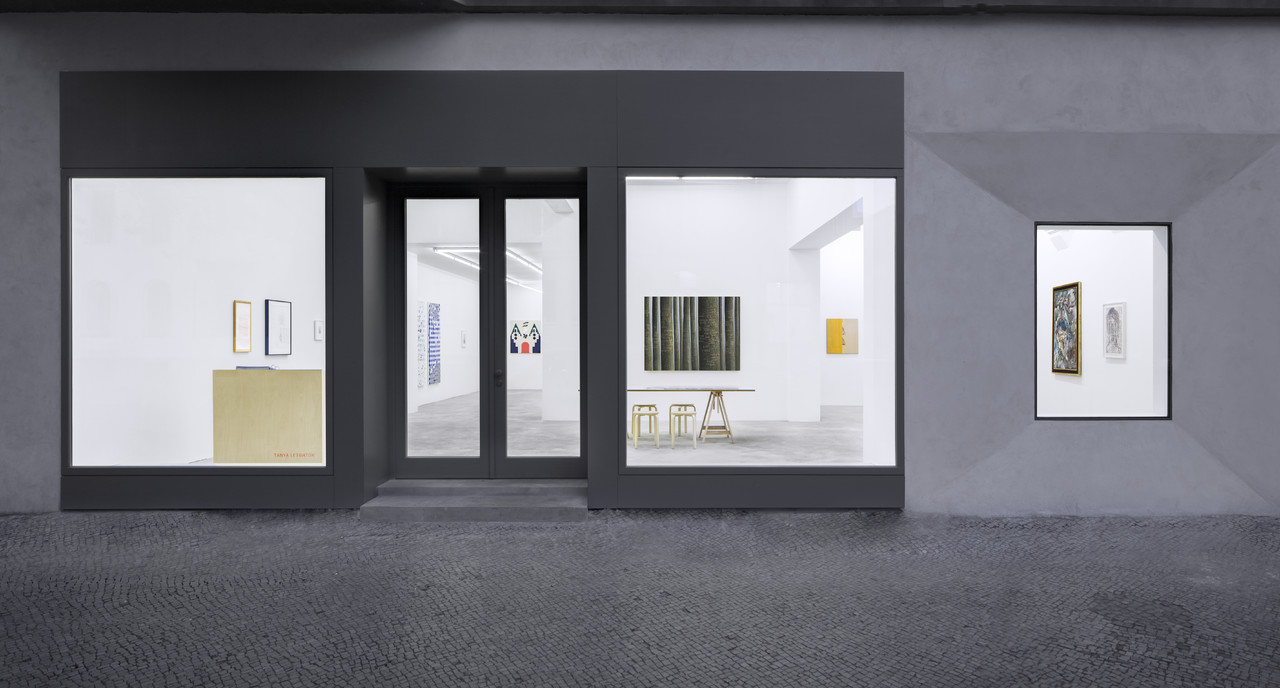Sharon Hayes
Public Appearances
6 September – 9 November 2013, Tanya Leighton, Berlin
Sharon Hayes will install Public Appearances — her second solo exhibition at Tanya Leighton — featuring a selection of new and recent works. Among the existing works to be shown is the film installation Gay Power (1971/2007/2012) and the audio installation Sarah H. Gordon's Strike Journal, May 1970 (2012), both of which are being shown in Berlin for the first time. These two collaborative works expand on the methods in which Hayes engages the present moment, as one that reaches both backwards and forwards. Both works continue Hayes' earlier engagements with the period of political activity in the 1960s and 70s, but in these instances Hayes collaborates with individuals – feminist author, artist, and leading women’s rights activist Kate Millett and historian Sarah H. Gordon – who lived through that moment, asking them to revisit and reinterpret material they generated in the early 1970s.
Gay Power, at the core of the exhibition, is a collaboration between Hayes, Millett, and the Women's Liberation Cinema (WLC). The film installation utilizes footage that Millett and the WLC shot of New York’s Second Annual Christopher Street Day Parade in 1971, which celebrates the Lesbian, Gay, Bisexual and Transgender community, and campaigns for liberation. Hayes and Millett have created a voiceover soundtrack to accompany — or speak with — the footage. As two voices from different generations, Hayes and Millett address the footage and the “movement” from two distinct historical positions. Neither voice commands authority over the moving image, demonstrating both the coherence and incoherence of historical documentation.
Throughout her work in performance, video, photography, sound, and installation, Hayes explores the connections between love, politics, and history, through various forms of address. The recent works in the exhibition include: I Saved Her a Bullet (2012) — an over-head projection of Anita Bryant, the notoriously homophobic singer and beauty pageant queen, being hit in the face with a pie while crusading against gay rights; and a sound installation comprised of two vinyl records titled Sarah H. Gordon's Strike Journal, May 1970, specially designed and pressed by Hayes, records Sarah Gordon reading from a journal she wrote as a student. The journal entries document the 1970 student strike at Smith College, Massachusetts, one of a series of student strikes protesting the Vietnam War, racism and the National Guard killings at Kent State on May 4, 1970. Gordon’s perspective articulates aspects of that significant student movement that are not often celebrated, such as the mundane details of the organizational apparatus of the strike and the confusion about committing oneself to a collective position. Gordon’s voice registering the decades of difference between her written self and the one reading, complicates the transmission of this “authentic” witness to history. Hayes’ interest in Gordon’s re-speaking of her own text, elaborates the artist’s investment in voice as an embodied medium of speech. Sarah H. Gordon’s Strike Journal, May 1970 is situated within a larger collaborative work, Space-Set/Set-Space (2012), a variable collection of bare plywood platforms, walls and seating units, produced by Andrea Geyer and Hayes as stagings for their individual and collective work.
In the video loop Her Voice (2012), Hayes cycles through descriptions of female voices taken from newspapers dating from the 19th century to the present. Ranging from ostensibly objective accounts to critical judgments, these citations reveal ways in which voices are evaluated and, as a result, what borders are imposed around an individual. Implicit in these citations are assumptions of gender, an important factor in the complex relationship between speech and its reception and interpretation. By substituting first-hand reports for actual speech, Her Voice explores the tension among the written, verbal, and embodied voices.
For a large window installation titled Join Us (2012/2013), reconfigured specifically for this exhibition, Hayes organizes approximately 200 flyers inviting participation in various political actions from the 1960s to the present. Collaborating with individuals and organizations across the United States, Join Us, is a collection positing the flyer as a speech act, one that proposes itself to a receiver. May 1st (2012) continues Hayes’ interest in the intersections between private and public, personal and political, life. The five letterpress prints compose an address to an unnamed lover — about and around the potent pleasure and despair of political desire.
